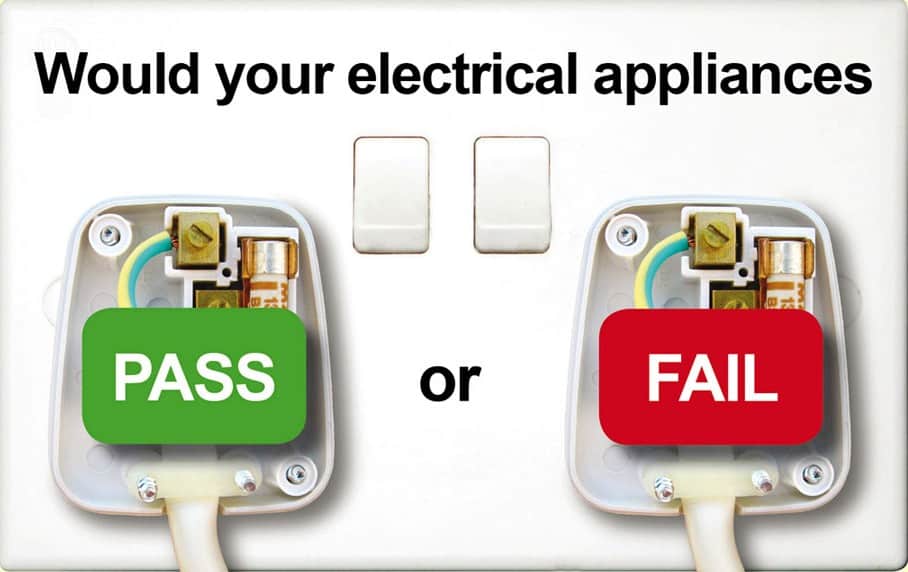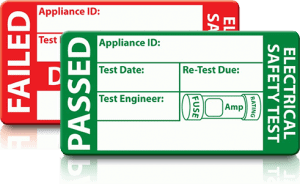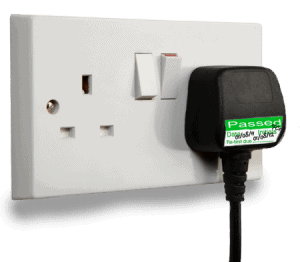Electricians4London provide a reliable and affordable Portable Appliance Testing (PAT) in London for businesses and commercial property owners. We use electricians who are fully qualified with up to date PAT equipment (which is calibrated annually). All PAT testing is carried out to the IEE code of practice for In-service Inspection and Testing of Electrical Equipment standards, and fully documented and recorded test results are supplied.
Why choose Electricians4London for Portable Appliance Testing London?
We believe electrical safety is important and portable appliance testing should be made available to everyone. At Electricians4London we fully understand that the two major factors in this are cost and the worry of being charged for hidden extras such as call out charges and bills for additional labour. We're confident that our transparent pricing structure will set your mind at ease.By regularly testing portable appliances you:
- Minimise risk of death or injury to yourself, your employees and visitors to your premises
- Risk of fire through faulty electrical appliances
- Legal requirements – Health and Safety regulations
- Insurance requirements - Many insurance companies require PAT testing. Your insurance policy may be invalidated if you have not complied with PAT requirements so any claims made on the policy could be refused.
Landlords – All Landlords who let their property as a business activity are required by law to ensure the equipment they supply with the tenancy is safe. The Electrical Equipment (Safety) Regulations 1994 requires that all mains electrical equipment including white goods, cookers, toasters, etc provided in rental accommodation, regardless of whether they are new or second hand must be safe. We strongly advise that the PAT test is conducted BEFORE the start of any new let.

Business – A PAT test is an essential part of any businesses Health & Safety Policy and Risk Assessment. The Provision and Use of Work Equipment Regulations 1998 (PUWER) requires, ALL employers in the UK to ensure that work equipment is both safe and fit for purpose. For this to be achieved a PAT test must be carried out.
We offer our professional, reliable portable appliance testing in london whatever your business size or needs
Portable appliance testing will be conducted at your premises at times to suit you thus helping to minimising disruption to your business. The Cost of PAT Testing varies depending on the number of appliances, location and accessibilty.
PAT Testing is usually carried out for the following -Landlords Properties, Tenanted Properties, Retail premise, Offices, Commercial Premises, Industrial Premises, Within the workplace where electrical appliances are supplied

What is PAT Testing?
PAT testing is a specialised process of testing all portable, electrical appliances to ensure they meet required safety standards. Typically it is a routine procedure for people who work with electrical appliances, or have them in a working environments.
Pat testing or portable appliance testing is an important part of any health and safety policy. The Health & Safety Executive states that around 1,000 electrical accidents are reported each year and about 25 people die of their injuries.
We carry out PAT testing for Offices, Factories, NHS hospitals, private hospitals, schools, colleges, universities, mod, local authorities, emergency services, public houses, clubs, bars, restaurants, garages, hotels, guest houses, theme parks, caravan parks, warehouses, construction sites, airports, landlords, estate agents, retail shops and stores, banks, building societies and many more…
PAT Regulations
The Electricity at Work Regulations place a legal responsibility on employers, employees and self-employed persons to comply with the provisions of the regulations and take reasonably practicable steps to ensure that no danger results from the use of such equipment.
The Electricity at Work Regulations state that all electrical equipment used in the working environment should be in a safe condition. The Health & Safety Executive recommend that you comply with the regulations. An inspection and testing schedule must be implemented at all work places. The frequency of this schedule will depend on the type of electrical equipment and on the environment which it is being used in.


